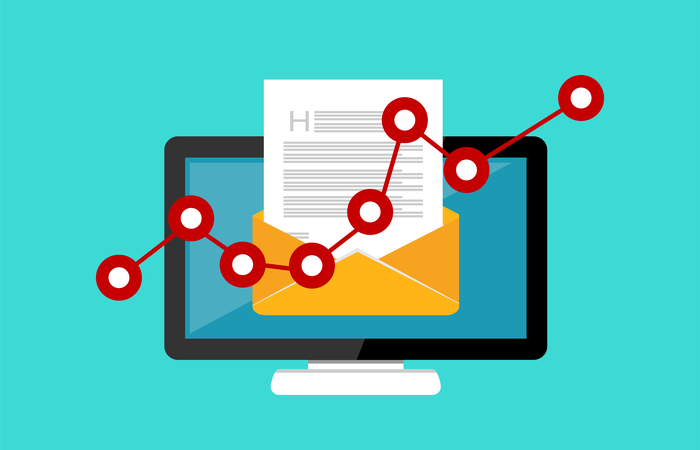While most of us are working remotely and social distancing, optimized email communication is more important than ever. Emails can be challenging to navigate. Customers and prospects often skim their overflowing inboxes, ignoring anything that doesn’t immediately catch their attention.
Using the DISC model can help your salespeople write emails that are tailored to each buyer’s personality type, making them more likely to read them and respond positively.
Writing emails using DISC will give your sales reps:
- Better response rates
- Improved rapport with prospects
- Faster movement through your sales process
What is DISC?
DISC is a behavior assessment tool that classifies behavior into four personality types with common behavioral characteristics and attitudes.
DISC divides people into four types:
- D types: Dominant, direct, to the point
- I types: Influencers, warm, friendly
- S types: Steady, patient, methodical
- C types: Control-oriented, data-focused, logical
This blog post can help your reps understand each style in depth. The guide below will teach them to quickly identify a prospect or customer’s style and tailor their emails on the fly.
The D Style
D’s tend to think in terms of bottom line, and prefer short, direct communication. Quickly identify the D personality by:
- Fast-paced speech
- Impatience with wasted time
- High expectations
- May seem “abrupt” or “short”
Emails to D personalities should:
- Eliminate warm greetings. D types see statements like “I hope you are doing well!” as wasted time and energy. Open simply with their name, or no greeting at all.
- Focus on benefits, not features. D types want to know what you can do for them, rather than how.
- Keep it short. Make only one or two points per email.
- Use bullet points. Make the email easy to scan for key information.
- Avoid “fluff.”
- Listen closely. D types expect to be heard the first time. Focus emails only on what they have directly expressed an interest in.
- Clearly state the next action in concrete terms.
- No need for a warm sign-off. Fewer words is better.
The I Style
I’s typically enjoy warm interactions and big picture conversations. Quickly identify the I personality by:
- Warmth and friendliness
- Animated and informal conversational style
- Tells stories
- May have a tendency toward “rabbit trails” and rambling paragraphs
Emails to I personalities should:
- Greet warmly. I’s value personal connection and a human touch. They may like an informal, “How’s it going?” or, “How was your vacation?”
- Make a personal connection. Use common interests and backgrounds in your emails to help establish the relationship.
- Focus on the big picture. I’s like to understand the high-level view rather than details.
- Use stories. Personal experiences, testimonials and case studies are great choices.
- Ask for their ideas and opinions. I’s love to talk, and the right questions can elicit long responses that build rapport and provide insight into their needs.
- Use paragraphs. Of all the types, an I is the most likely to read and absorb a long email.
- Don’t push the sale. An I is more likely than other types to take offense at a direct sales pitch too early in the conversation. It’s okay to “bury the point” in the email, but give them a relationship-based action to take such as scheduling a call.
- Close with warmth. “I hope you have a wonderful week,” or “warmly yours” are good closers.
The S Type
S Types usually prefer a patient, trustworthy style and tend to be risk-averse. Identify the S personality by:
- A friendly but formal greeting style
- Prefers a slow pace
- Asks risk-related questions
- Easy-going but resists pressure
Emails to S personalities should:
- Greet warmly but formally. The S personality type values patient relationship-building practices. Emails should lead with greetings such as “Hi Carl,” or “Hello Jessica.”
- Build trust. S personalities like to see how one part of the process leads naturally to the next. They will notice when salespeople don’t follow through, so be clear and consistent in communications and actions
- Avoid pressure tactics. Any perceived pressure from your reps will damage rapport and create resistance.
- Be sincere.
- Use a mix of paragraphs and bullets. S types don’t mind long emails, as long as they are substantive. Mix paragraphs and bullets in a methodical order that answers all of their questions and demonstrates a clear process.
- Choose a low-risk call to action. S types like to take small steps. Ask for a low risk action such as a quick call or answering some questions.
- Close with warm formality. “I look forward to speaking soon,” or “I’m excited to begin work together” are good closing statements for an S.
The C Type
C’s like analytics, details, and methodical communications. Identify the C personality type by:
- Formal greeting style
- Cautious and detail-oriented communications
- Asks for data and analytics
- Talks about doing things the “right” way
Emails to C personalities should:
- Greet formally. “Dear” and “Hello” are good choices. Use the person’s title plus last name until told otherwise.
- Support statements with data. C personality types are naturally skeptical and appreciate detailed product sheets, data, and analytics that clearly support factual statements.
- Use bullet points. C types appreciate systematic, organized communication that gets right to the point but also provides details they can examine.
- Be diplomatic and courteous. Avoid personal questions and “chumminess.”
- Under promise and over deliver. C personalities would rather hear a statement they readily believe than a promise that feels overblown. They notice when promises aren’t backed by action.
- Choose a process-oriented call to action. C types like seeing concrete steps toward a goal that makes sense to them. Choose a call to action such as, “The next step is to schedule a call to identify where your greatest point of need is.”
- Close with formality. “I will speak with you next week” or “Sincerely” are good choices.
Using this Information to Have Better Interactions with Buyers
Getting through to customers and prospects through email can be tough for salespeople.
When your salespeople can identify and adapt to your customers’ and prospect’s buying behavior styles, they have an immediate advantage over the competition.
That’s why our training program, Selling to Different Personality Types, is so powerful—, especially in today’s competitive environment.
Here’s a quote from one of The Brooks Group’s long-time clients:
“We use “buyer styles” as a way to differentiate our salesforce from our competitors—it has become embedded in our sales culture to such an extent that we never have a discussion or strategy session without understanding the buyer styles involved. It’s the “special sauce” in our sales culture that allows us to outsell our competition, because we “sell” to our clients the way they want to be “sold.” Our competitors sell everyone the same way; while we tailor each client interaction based on that buyer’s specific preference for communication.”
-David Finch
Owner, ATCOM Business Telecom Solutions
Looking to boost the effectiveness and performance of your remote sales team? Our IMPACT Selling Virtual Instructor-Led Sales Training Program is the perfect solution. Our expert facilitators can train your team online from anywhere, in a live, collaborative, virtual classroom. Learn more about our Virtual Instructor-Led Training with our requesting one of our helpful information packets below.




